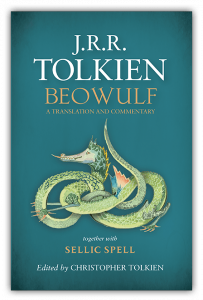 Tolkien scholar John Garth previews the forthcoming publication of J.R.R. Tolkien’s translation of Beowulf and outlines why the Professor’s expertise with the Anglo-Saxon epic means this new book is to be highly anticipated. Click through the read more link at the bottom to access the complete essay.
Tolkien scholar John Garth previews the forthcoming publication of J.R.R. Tolkien’s translation of Beowulf and outlines why the Professor’s expertise with the Anglo-Saxon epic means this new book is to be highly anticipated. Click through the read more link at the bottom to access the complete essay.
JRR Tolkien’s translation of Beowulf: bring on the monsters
by John Garth
This week, HarperCollins announced that a long-awaited JRR Tolkien translation of Beowulf is to be published in May, along with his commentaries on the Old English epic and a story it inspired him to write, “Sellic Spell”.
It is just the latest of a string of posthumous publications from the Oxford professor and The Hobbit author, who died in 1973. Edited by his son Christopher, now 89, it will doubtless be seen by some as an act of barrel-scraping.
But Tolkien’s expertise on Beowulf and his own literary powers give us every reason to take it seriously.
Beowulf is the oldest-surviving epic poem in English, albeit a form of English few can read any more. Written down sometime between the eighth and 11th centuries — a point of ongoing debate — its 3,182 lines are preserved in a manuscript in the British Library, against all odds.
Tolkien’s academic work on it was second to none in its day, and his 1936 paper “Beowulf: The Monsters and the Critics” is still well worth reading, not only as an introduction to the poem, but also because it decisively changed the direction and emphasis of Beowulf scholarship.
Up to that point it had been used as a quarry of linguistic, historical and archaeological detail, as it is thought to preserve the oral traditions passed down through generations by the Anglo-Saxon bards who sang in halls such as the one at Rendlesham in Suffolk, now argued to be the home of the king buried at Sutton Hoo.
Beowulf gives a rich picture of life as lived by the warrior and royal classes in the Anglo-Saxon era in England and, because it is set in Sweden and Denmark, also in the period before the Angles, Saxons and Jutes arrived on these shores. And, on top of the story of Beowulf and his battles, it carries fragments of even older stories, now lost.
But in order to study all these details, academics dismissed as childish nonsense the fantastical elements such as Grendel the monster of the fens, his even more monstrous mother and the dragon that fatally wounds him at the end.


